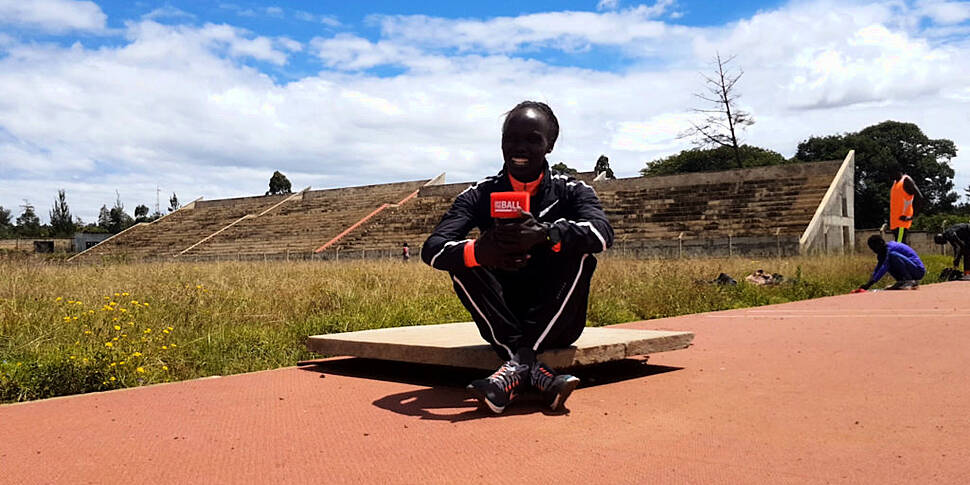For all its past glories, 2019 may have been Kenyan athletics’ greatest ever year. However, the sport there – particularly for women – is plagued with problems.
Travelling to Eldoret and Iten for a special report in late 2019, Jake O’Donnell writes how progress remains slow for the world’s fastest women.
Eldoret, Kenya –– The streets are alive with traffic. Chaos ensues, and the rules of the road are disregarded – that’s how you know it’s back to normal in the busy city centre where just days earlier cars vanished and people flocked in their droves.
The self-described ‘City of Champions’ came to a standstill, the country to a stop, as Eliud Kipchoge inscribed Kenya's name into history, running the world’s first sub-two-hour marathon.
Businesses were shut, big screens erected and tears shed as Kipchoge – Kenya’s most beloved son – raised the country’s distinctive tricolour with his unprecedented feat 3,000 miles away in Vienna.
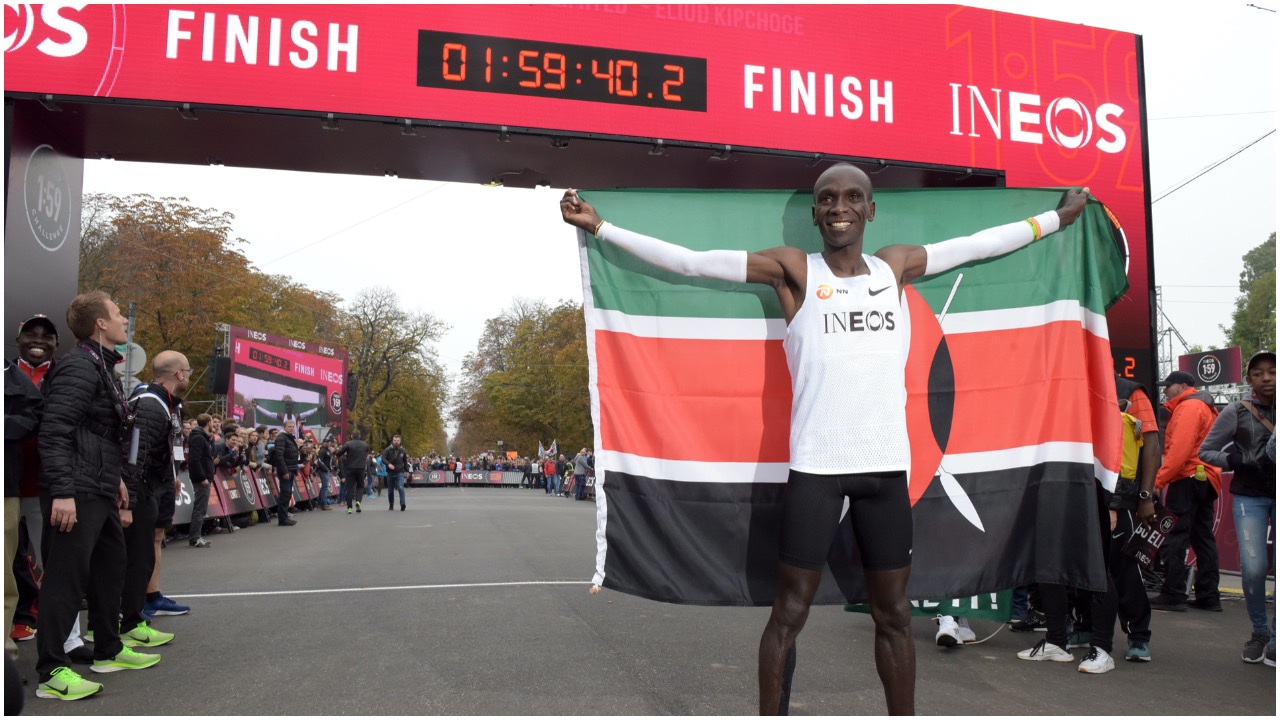 Eliud Kipchoge after making history with the world's first-ever sub-2 hour marathon, Vienna 2019.
Eliud Kipchoge after making history with the world's first-ever sub-2 hour marathon, Vienna 2019.The nationwide celebrations weren’t short-lived either. Lining up at the Chicago Marathon the following day, Kenya’s Brigid Kosgei demolished the women’s world record, skimming 81 seconds off Paula Radcliffe’s 2003 London Marathon time.
Kenya, for all its problems, poverty and political corruption, was beamed into homes across the world for its achievements that were testament to peak human performance alongside Edmund Hillary’s Everest expedition and the first four-minute mile.
However, during a 10-day trip across Eldoret and Iten, focusing on the trials and tribulations of Kenya’s female athletes, many paint the picture of a sport plagued with problems, particularly for women.
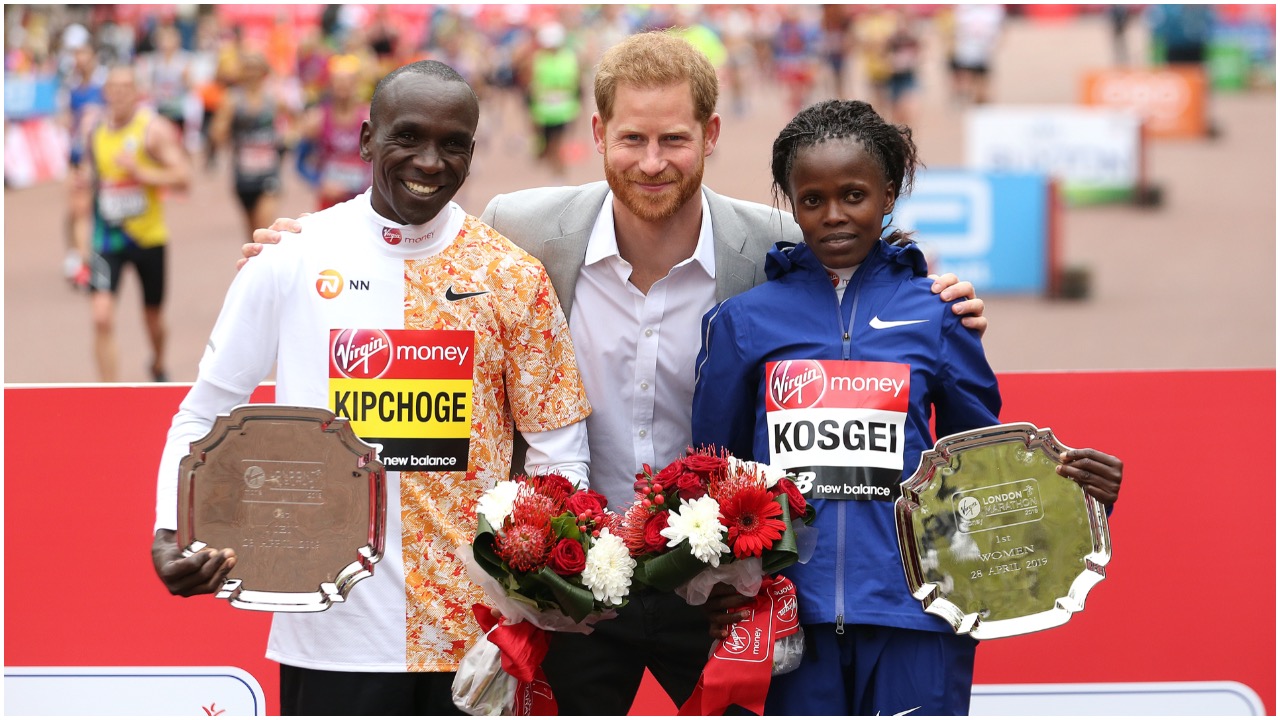 History makers: Eliud Kipchoge and Brigid Kosgei pose with Prince Harry after winning the men's and women's 2019 London Marathon respectively.
History makers: Eliud Kipchoge and Brigid Kosgei pose with Prince Harry after winning the men's and women's 2019 London Marathon respectively.Tradition, Hyenas and Exploitation
Speaking to OTB Sports in Iten, Ken Rotich, who trains a number of athletes including his wife Caroline, winner of the 2015 Boston Marathon, is the first to highlight a concerning issue for his female athletes.
In the same week as Kosgei’s record-breaking run in Chicago, one of his most promising young female athletes – on the verge of signing with Nike and a certain future star, he says – was forced to leave camp by a boyfriend.
“That is the biggest problem,” he explains of the pressure he sees exerted by boyfriends and husbands who can fatally end their partner’s athletic careers.
In a separate interview, three-time Olympian Lydia Cheromei describes such examples as “common” in her experience of the sport, where she has seen peers pressured into starting families rather than pursuing their careers.
While huge progress has been made since Kenyan women began competing at international level in the 1990s, fighting the inertia at the heart of traditional society is just one of many hurdles women must overcome to reach the sport’s pinnacle.
More troubling, some former athletes say is the phenomenon of “hyenas” who pose as coaches or agents to manipulate emerging female stars into marrying them, only to exploit them for financial gain.
When women run here and they are single, most of them have a lot of problems
Once coaxing a young athlete into marriage, the so-called hyena will take responsibility over finances, putting assets in their name or hiding money as investments.
It’s an arrangement that has stung many athletes before.
Speaking on the condition of anonymity, one former star, who lost much of her wealth in a business run with her ex-husband, says many are too scared to talk about their experience, even if they were exploited.
“They fear the husband,” she explains. “In Kenya, the husband has more control than women, so the ladies fear them. They can be chased away. They fear to say something or they could be thrown out.”
Reporting by The Star, a Kenyan newspaper, backs her testimony up. Last year, the paper identified 16 female athletes who had lost tens of thousands of dollars worth of assets to “hyenas”.
“People are losing their homes,” Susan Sirma, the first Kenyan woman to win a medal at World Championship level, exclaims over tea in Eldoret.
The number of older men posing as coaches to marry young athletes was so stark that Janeth Jepkosgei – a former 800 metres world champion – and other athletes began visiting schools to highlight the issues of marriage, education and sport.
Believing education could protect the next generation of young girls from the “danger” of exploitation, Jepkosgei became the patron of a school for 300 students in Nandi County.
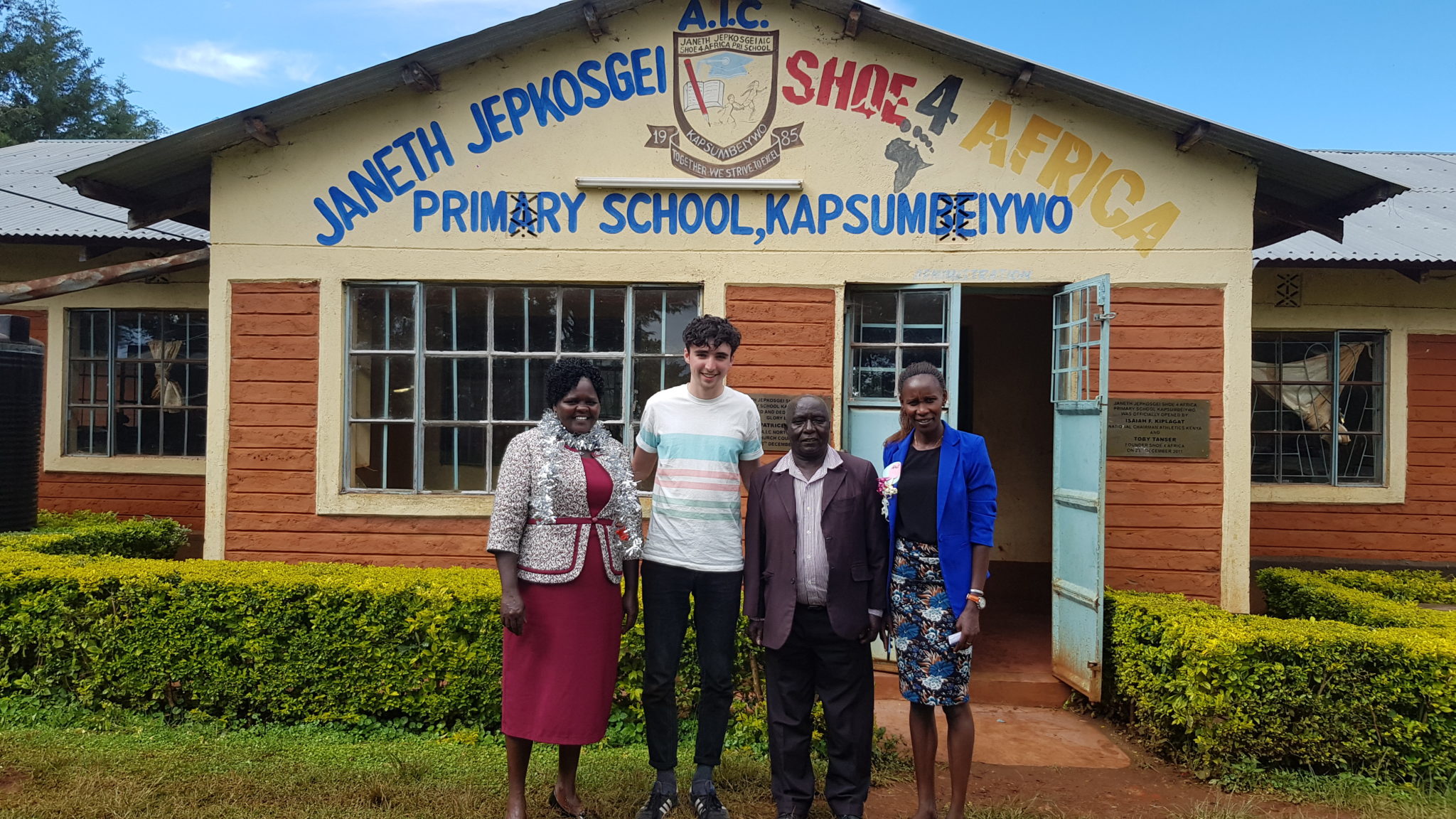 OTB visits the Janeth Jepkosgei Shoe For Africa School in Kapsumbeiywo, Kenya. Janeth (in blue) is patron to the school of over 300 students.
OTB visits the Janeth Jepkosgei Shoe For Africa School in Kapsumbeiywo, Kenya. Janeth (in blue) is patron to the school of over 300 students.For her, relationships and hyenas are still the biggest stumbling block for young women looking for success in athletics. “I say it’s dangerous, but it’s more challenging when it comes to where the money is and that is why I am focusing on education and athletics,” opines Jepkosgei.
“You found coaches taking money to the parents to convince them and the parent – who is not even educated – was accepting the money,” Jepkosgei says.
“Once someone is learned, their life will be easier [and] they can manage their own money.”
Running professionally for over a decade on Europe’s road running circuit, Joseph Chesire shares similar concerns which have inspired him and his brother Mike to establish and run another school for his local community.
We are scared. We just see it and keep quiet
Discussing why he put so much of his money into education, a visibly angry Chesire immediately points to the “suffering” caused by hyenas.
“When women run here and they are single, most of them have a lot of problems.
“People take advantage of them because they want to reap what they have not sown. When they see you run, they make friends.”
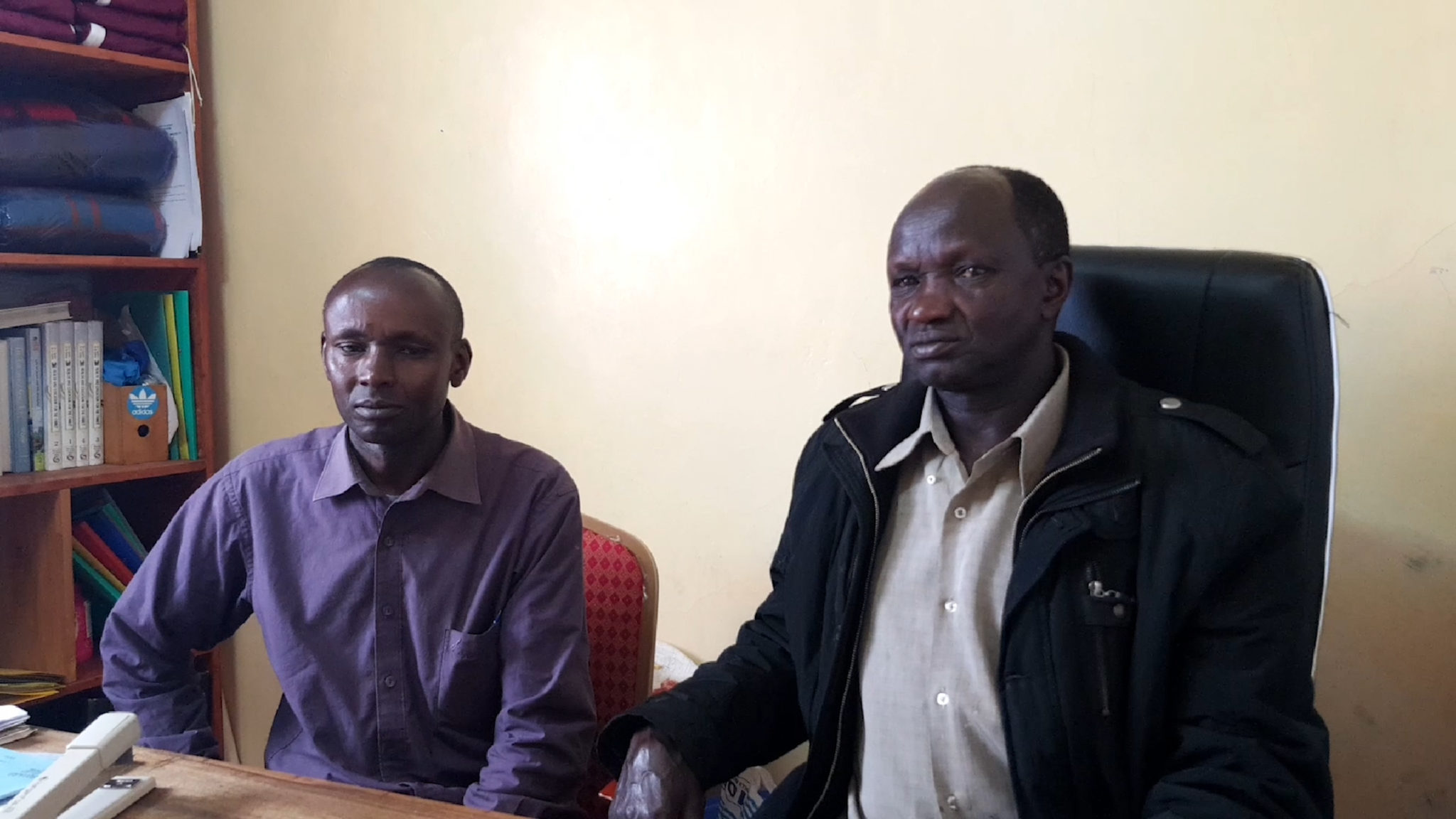 Mike and Joseph Chesire in the school they founded with earnings made through athletics.
Mike and Joseph Chesire in the school they founded with earnings made through athletics.It’s an issue not unique to women, either. Targeted himself by hyenas posing as friends and business partners, Chesire also lost a proportion of his career earnings. His investments in a jointly-owned transport business misused while he was away competing.
As ever-increasing sponsorship money continues to pour into the sport, the issue has become particularly jarring.
“It’s a lot of money,” Chesire exclaims. “If you see some hyenas changing their lifestyle, driving a wonderful car, living in a very flash lifestyle – you know they have not reaped what they have sowed.”
While many athletes discuss the issue, few, like Chesire, talk about their own experiences. Fear, warnings and self-blame keep others quiet.
“They won’t talk about it. We are scared. We just see it and keep quiet,” he says.
Unemployment and lack of opportunity can lead some to view a young athlete as their ladder out of poverty.
Four-time world champion and a 5000m gold medallist at Rio 2016, Vivian Cheruiyot attests that many of these relationships start in the country’s numerous private training camps.
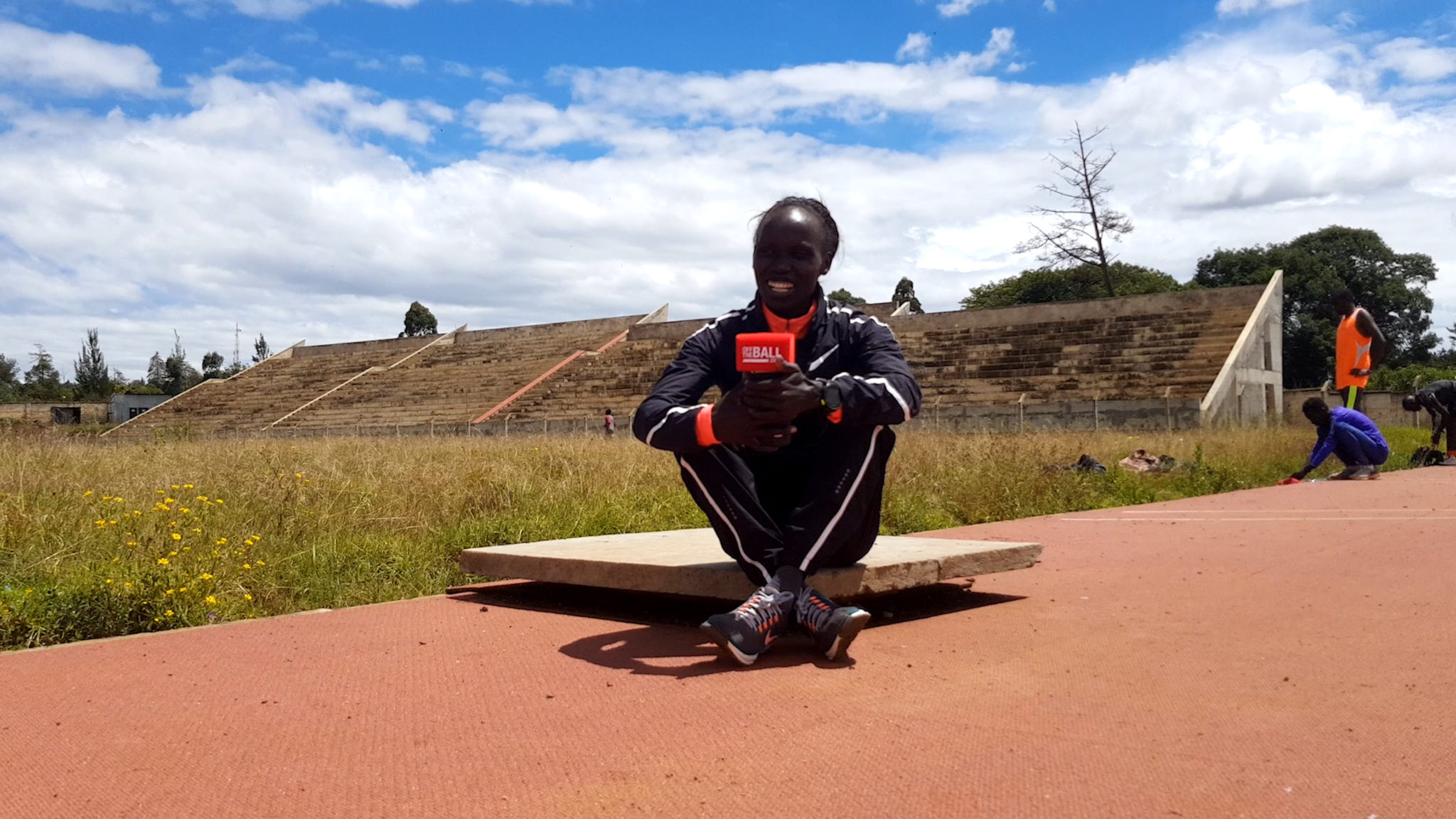 Gold medallist at the Rio Olympics, Vivian Cheruiyot talks to OTB following training at the quarter-built Kipchoge Keino Stadium in Eldoret. Renovation work there has stalled since 2017.
Gold medallist at the Rio Olympics, Vivian Cheruiyot talks to OTB following training at the quarter-built Kipchoge Keino Stadium in Eldoret. Renovation work there has stalled since 2017.“You find the young ones can be married by their coaches because they stay together in the same camps and sleep together in the same camps,” she says after training in Eldoret.
“Sometimes they are an older person and these are kids. If you have a coach in a camp and you are still young, they are like a father. You can cheat a young girl when she is 16, who doesn’t know anything. It’s not good.”
The Need for Role Models
While many athletes want Athletics Kenya (AK) to provide more support, another fix sought by those concerned is the success of individual role models who will champion the importance of education.
One athlete who set out to be that positive example was Lornah Kiplagat.
Founding the Lornah Kiplagat Foundation in 2000, the Olympian and twice World Road Running champion sought to foster a generation of young women to become leaders in their community through education and athletics.
Young athletes were identified, and The High Altitude Training Centre (HATC), equipped with a gym, swimming pool, and boarding facilities was constructed in Iten to serve as the foundation’s home.
A KS90,000,000 (€777,000) state-of-the-art tartan track followed in 2013 thanks to funding from London Marathon and a smaller sum from the Kenyan government.
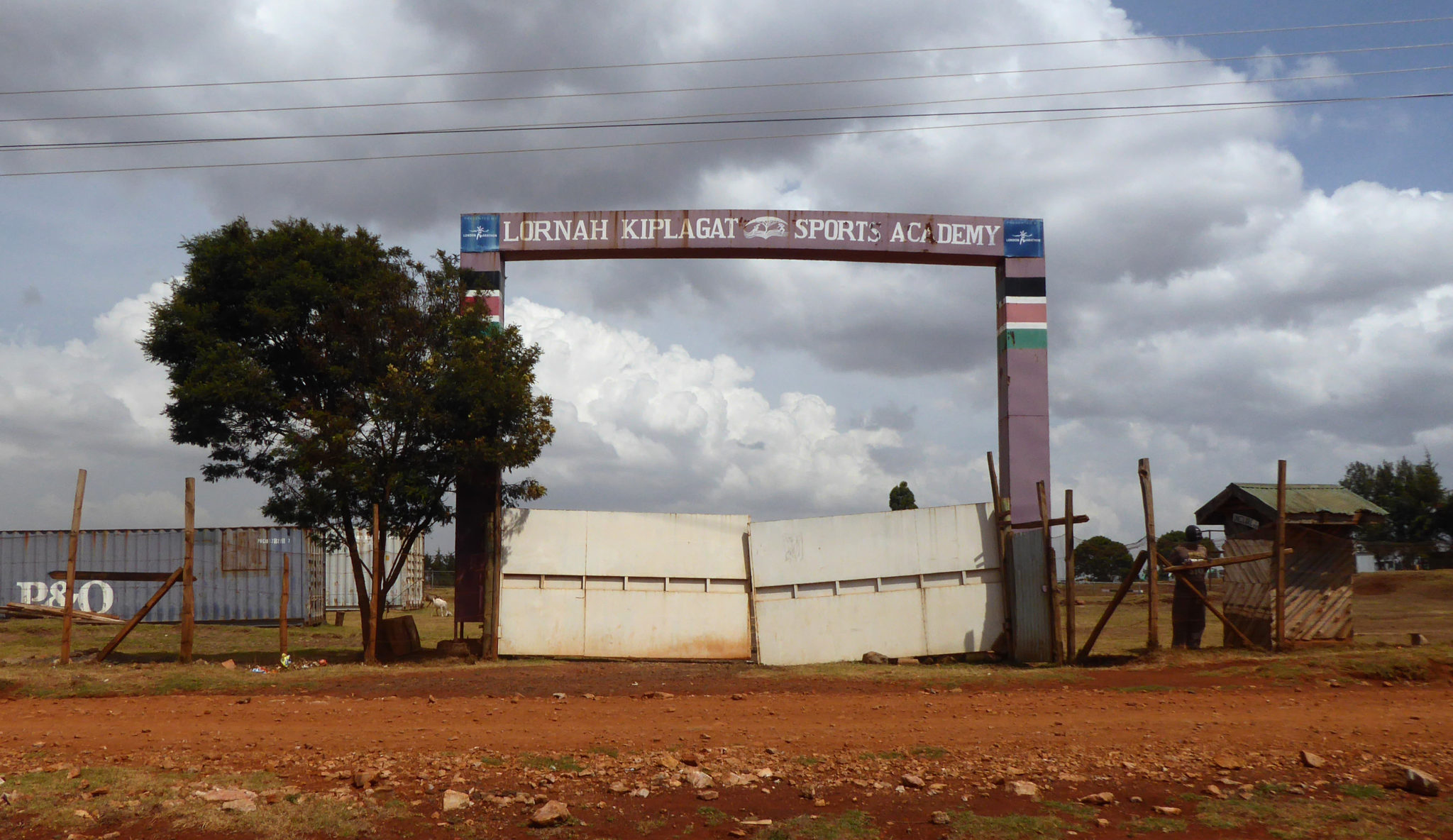 The entrance gate to the training centre of former marathon runner Lornah Kiplagat.
The entrance gate to the training centre of former marathon runner Lornah Kiplagat.However, despite a clear founding ambition to serve the community, what the foundation does today is less apparent.
Currently, the High Altitude Training Centre is €54 per night for accommodation while non-residents are charged €10 for a day’s use of the running track.
Arriving in Iten from Cork 44 years ago, Brother Colm O’Connell has trained local Kenyan athletes to become world champions on 25 occasions. Often described as the “Godfather of Kenyan Running”, O’Connell explains that “somewhere along the line, the role of the camp [foundation] changed direction.”
Today, he says, the HATC is an “accommodation centre particularly for European and western athletes.”
“As far as I know, in a direct capacity, I don't think Lornah has any Kenyan girl athletes resident in the camp and being coached from within the camp.”
Kiplagat declined requests to be interviewed for this project.
Speaking to OTB Sports, CEO of London Marathon, Nick Bitel, says funding for the track was provided with the intention of it being used by British athletes training in Iten while also benefiting Kiplagat’s foundation and the community.
Asked about the cost to use the track for locals, Bitel said he was not aware of that but not surprised either. “Pricing for facilities is an issue in poorer communities not just in Kenya but also in England and Ireland,” he added.
Doping, Corruption and Facilities
The repeated flagging of hyenas as the main obstacle facing young female athletes is telling for the number of other challenges facing them across Kenyan athletics.
Principally, Kenyan athletics has a doping problem. The year of Kipchoge and Kosgei was also the year of 15 more bans for top Kenyan runners. Add that to the 138 other positive tests since 2004, and pictures of the country’s recent sporting joy risk being marred, if not entirely obscured.
There are nearly 50 Kenyans currently serving doping bans of four years or more. That includes the country’s 2016 Olympics athletics team manager Michael Rotich, sanctioned for giving athletes advanced warning of doping tests.
While some have cheated the system, many more promising athletes in Kenya are victims to those who opt to do so. Few, if any athletes, however, list doping as among the biggest challenges facing them in the sport.
More often a lack of facilities for the country’s best athletes is mentioned.
Iten’s legendary Kamariny Stadium – opened by Queen Elizabeth in 1958 – is today overrun with sheep. Demolished for a planned renovation, work has stalled since 2017.
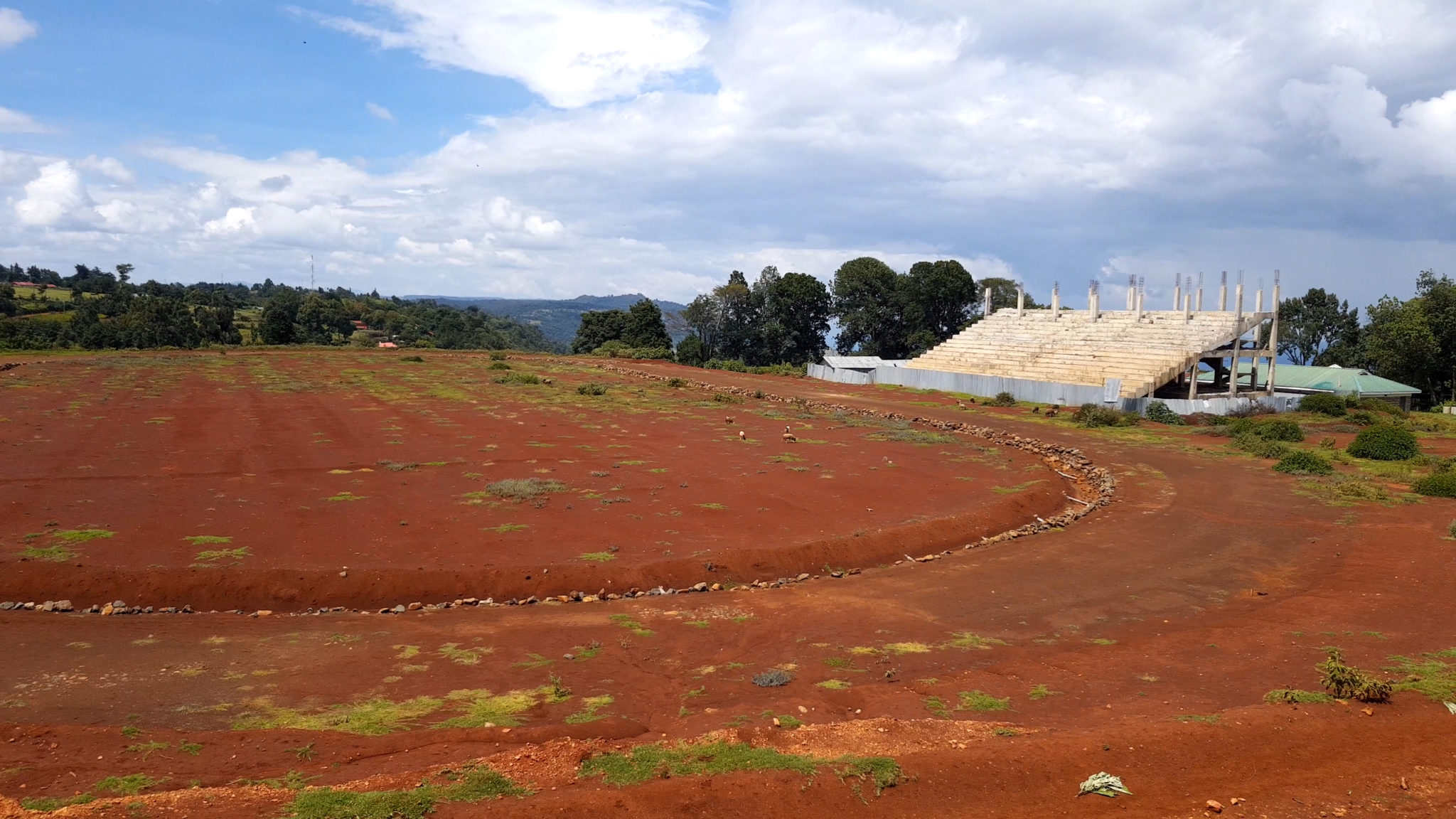 The once legendary Kamariny Stadium in Iten is today home to more sheep than athletes.
The once legendary Kamariny Stadium in Iten is today home to more sheep than athletes.Thirty minutes away in Eldoret, athletes soon forget past glories climbing over mounds of dirt and rubble to use a finished track in the quarter-built Kipchoge Keino Stadium. Work there is similarly stalled.
Resigned to primarily training his athletes on the country’s mud roads, Brother O’Connell says he is not aware of a single “functioning” public track in the country.
It is indicative, he and many others say, of a lack of support from AK who provide “very little investment” in the sport at youth or grassroots level.
The association’s corruption has done nothing to help the cause of Kenya’s trailblazing athletes either. In 2018, the International Association of Athletics Federations judged both AK’s Vice President, David Okeyo, and former treasurer, Joseph Kinyua, to have diverted hundreds of thousands of dollars worth of sponsorship from Nike for their own personal use.
These failings in governance and stewardship have consequences for the country’s prospects at the highest level. Offers of better financing and support led 40 Kenyan runners to compete for other countries during the 2016 Olympics.
Education Brings Hope
Despite these issues, however, it is still the politics between husband and wife that is raised repeatedly by current and former athletes as the potential stumbling block for young female athletes.
As many of the world’s female sports stars wage a battle for increased media coverage and pay parity, here in Kenya there is a host of more pressing problems to be dealt with as a matter of priority. Chief among them, hyenas.
We are getting closer to ending this thing of stealing from young girls
Progress, however slow, is being made.
Former athletes who have seen friends fall by the wayside are excited by the success of educated athletes like Kipchoge and Kosgei as well as the number of athletes founding schools and investing back into the local economy.
Another addition aspiring to improve things is the Veteran Kenyan Athletes Association, led by Susan Sirma and the esteemed former marathoner, Simon Biwott.
The group wants to be a voice to represent the interests of athletes past and present in discussions with AK and the Kenyan government.
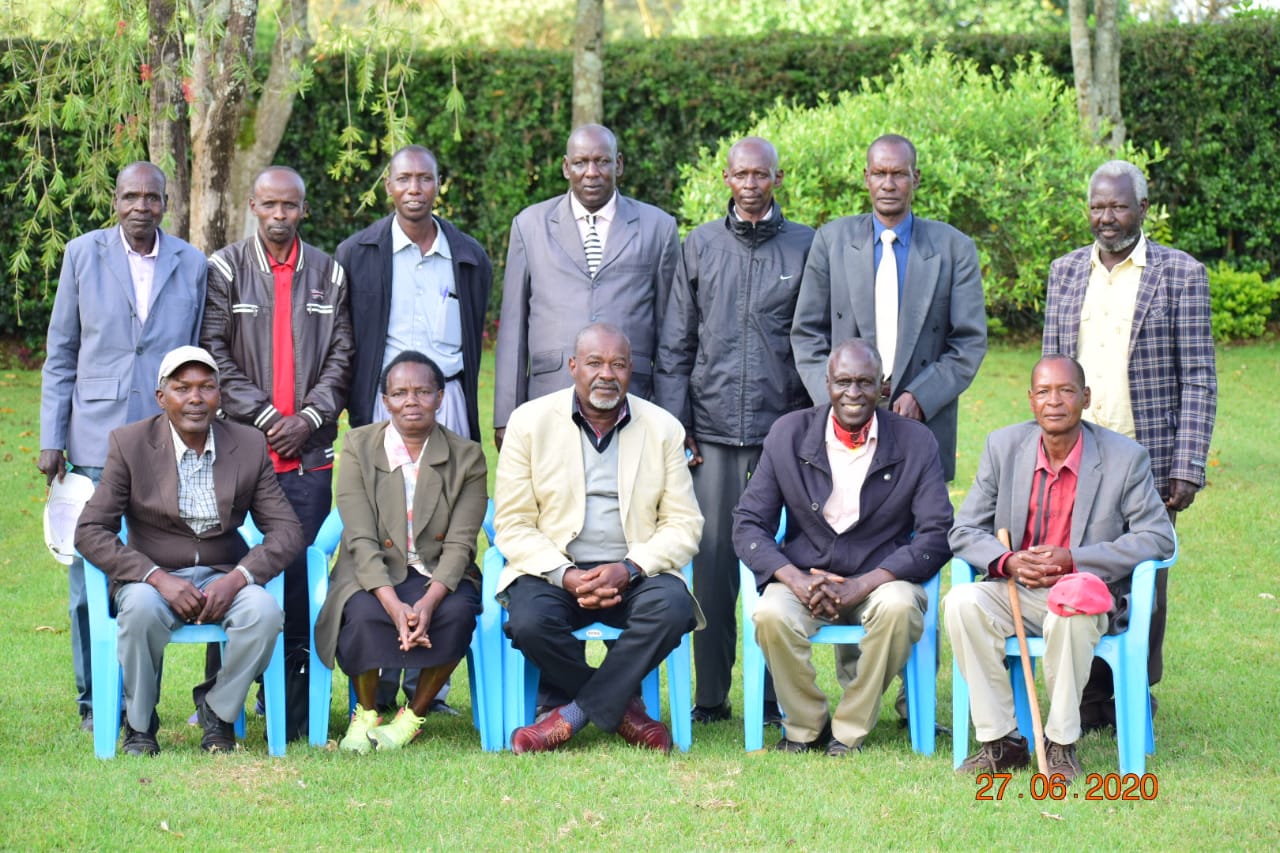 Members of the newly established Kenyan Veteran Athletes Association. Susan Sirma (front, second from the left) is the association's Chairperson.
Members of the newly established Kenyan Veteran Athletes Association. Susan Sirma (front, second from the left) is the association's Chairperson.A key aim is to mine the expertise of the estimated “80 percent” of veteran athletes who are struggling financially or otherwise away from the sport, while also driving out hyenas who prey on the sport’s success.
“Kipchoge broke the world record and his coach is a former athlete, Patrick Sang,” Biwott begins of the organisation’s plans.
“Kosgei – who broke the world record in Chicago – her coach, is a former athlete. This is an eye-opener. If we can give these former athletes opportunities with young athletes, then you cannot compare.”
Also involved with the project, Joseph Chesire says it is another step towards providing the education and support needed by the country’s young athletes.
“The new generation is changing,” he says, “and it is because of education. We are getting closer to ending this thing of stealing from young girls.
“I watch many athletes run now and I have seen them being interviewed.
They speak good English and that is the moment that I see they are now learned people. That is my happiness.”
Supported by the Simon Cumbers Media Fund
Download the brand new OffTheBall App in the Play Store & App Store right now! We've got you covered!
Subscribe to OffTheBall's YouTube channel for more videos, like us on Facebook or follow us on Twitter for the latest sporting news and content.

